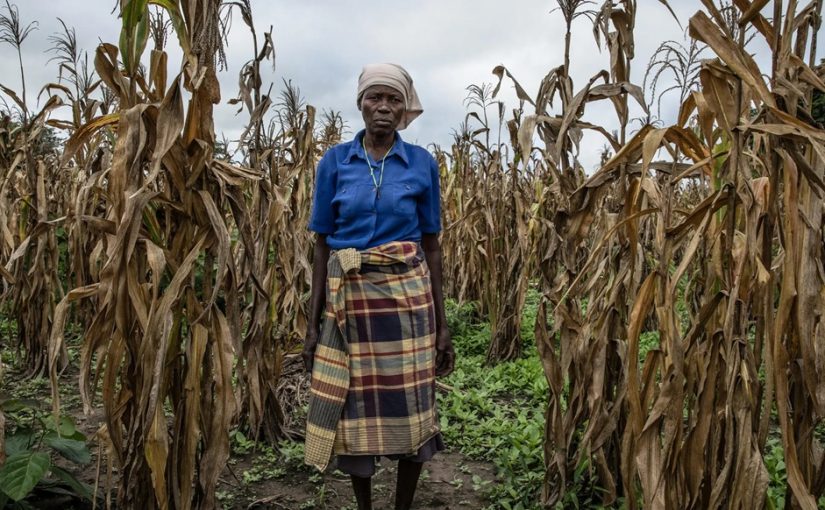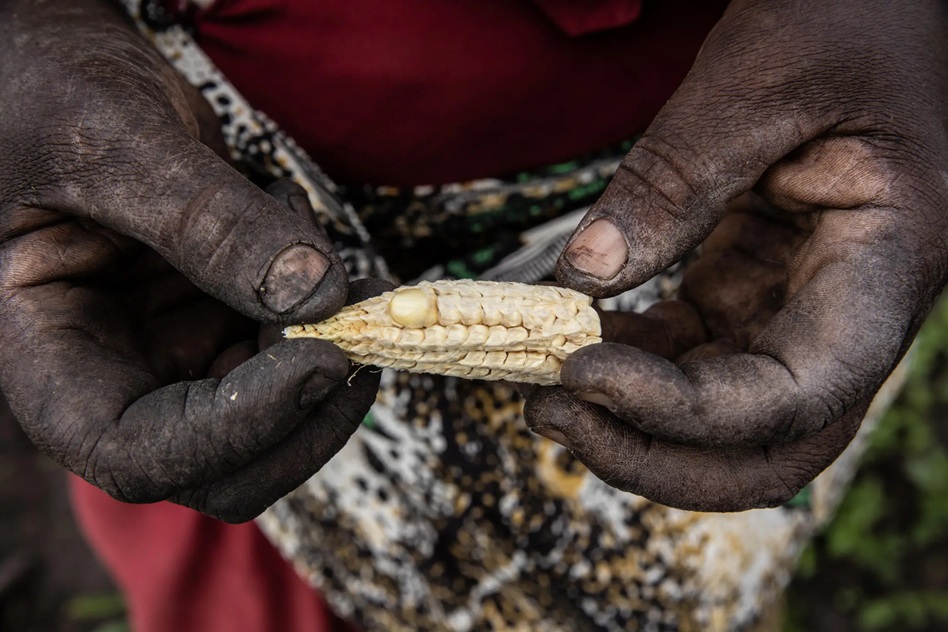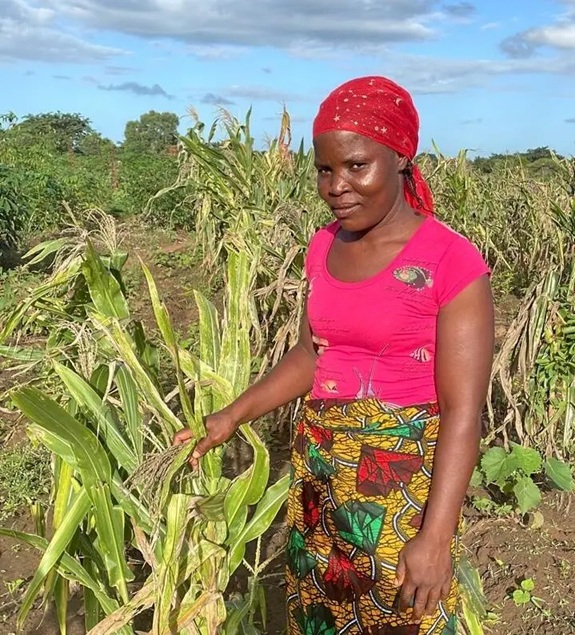Mozambique: President expects 5% increase in food production this year
Local communities lead drought response in central Mozambique

A farmer with her crops destroyed by the heat in Mozambique. [Photo: WFP/Gabriela-Vivacqua]
After a year-long drought upturned their lives, communities in central Mozambique are helping people recover and prepare for future extreme weather.
The El Niño-related drought devasted crops and livestock and left more than 1 million people in Manica and Sofala Provinces without income or hope.
Communities and local non-governmental organizations (NGOs) are now working with the Government and humanitarian partners as they rebuild lives in Caia and Chemba districts and Sofala Province. One such NGO is the National Association for Self-Sustainable Development (ANDA), in Manica’s Macossa district.
Virgina Patrico Murio, a Programme Officer with ANDA, explained: “We work with WFP [World Food Programme] and FAO [Food and Agriculture Organization] to ensure assistance reaches people in Macossa’s communities. As a local organization, we have a deep understanding of the people, their life and things that happen in the community. Our knowledge of the local culture, our proximity to the community and the good relationship with the district authorities are key factors that allow us to achieve good results.”
She added: “The community is effectively involved in the whole process; they play a leading role and make decisions on how the assistance should be conducted.”

Acting ahead
Since October 2024, the communities have helped set up early warning systems and climate-proofing infrastructure, such as boreholes, drinking fountains, irrigation systems and greenhouses, and provided farmers with drought-resistant seeds. Partners provided school meals and shared awareness messages with communities.
These actions, commonly known as anticipatory action, helped more than 85,000 people in Caia and Chemba, prevented school dropouts and averted food insecurity.
They are also transforming how communities prepare for drought and minimize its devastating impact before it reaches crisis levels, according to the Government.
By using early warning systems, district authorities and partners, including local organizations, proactively safeguard food security.
As climate change intensifies droughts worldwide, anticipatory action is a game-changer in protecting livelihoods and ensuring communities remain self-sufficient.
To support the wider response in the province, the OCHA-managed Central Emergency Response Fund helped the UN and partners deliver assistance to more than 250,000 people in Macossa and Maringue districts. This included food, protection, and water and hygiene services.
“If the UN and other partners had not responded quickly to the impact of drought in our district, the situation could have worsened and probably by now we could be reporting deaths,” said António Dinis, District Administrator for Macossa, in Manica Province.

Locals lead the response
Humanitarian partners are building local partners’ capacity to lead and participate in aid distribution.
Ms. Murio explained: “From the time we are able to identify issues in the community and provide solutions, we feel empowered and that our role goes beyond just helping UN partners; rather, we are leading the response ourselves, as long as we have the necessary funding. Therefore, capacity-building would help to strengthen local organizations and involve them in the response.”
Coordinating the response
With increasingly scarce financial resources, the Government, partners and donors are continuously calling and advocating for humanitarian assistance to be more integrated and well coordinated.
The community and district authorities identify the most vulnerable people, working closely with national NGOs. This makes the assistance more effective, as partners have a permanent presence in the community.
“It’s important to work together to mitigate the impact of drought in our province and beyond, because working in isolation we may not achieve the desired results,” said Lourenço Lindonde, Secretary of State of Manica Province.
The Head of OCHA Mozambique, Paola Emerson, said: “We have been collaborating effectively with the different partners, and we look forward to having more efficiency as we continue doing joint assessments and monitoring.”
By Alvo Ofumane













Leave a Reply
Be the First to Comment!
You must be logged in to post a comment.
You must be logged in to post a comment.